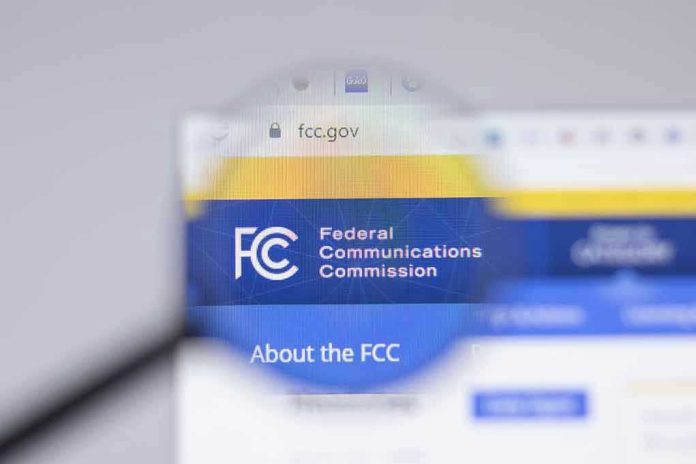
Donald Trump’s call for Seth Meyers’ firing, reposted by an FCC Commissioner, ignites a media firestorm over free speech and regulatory boundaries.
Story Highlights
- Trump demands NBC fire Seth Meyers after critical monologues.
- FCC Commissioner Brendan Carr amplifies Trump’s demand.
- The incident raises concerns about media freedom and regulatory influence.
- It highlights the ongoing politicization of late-night television.
Political Power and Media Freedom Collide
Donald Trump’s public demand for NBC to terminate Seth Meyers has escalated from a typical media critique into a full-blown political controversy. Meyers, known for his incisive political satire, has often targeted Trump in his monologues, including references to newly surfaced Epstein-related emails. The situation intensified when FCC Commissioner Brendan Carr reposted Trump’s demand, blurring the lines between political influence and regulatory authority. This act has fueled debates over the role of federal regulators in media content.
The involvement of an FCC Commissioner in such a matter is unprecedented. The FCC, traditionally an independent body, oversees broadcast licenses but usually steers clear of content-based disputes due to First Amendment protections. Carr’s action raises questions about the agency’s impartiality and the potential implications for media freedom. NBC, caught in the crossfire, must navigate the delicate balance of maintaining editorial independence while addressing public and political pressures.
Media Environment Under Strain
Late-night television has become a battleground for political discourse, with hosts like Meyers often using their platforms to critique political figures. This incident is not isolated; recent suspensions and cancellations of other late-night hosts, such as Jimmy Kimmel and Stephen Colbert, reflect the increasing scrutiny and politicization of this media segment. The release of Epstein-related emails mentioning Trump adds another layer of complexity to the issue, further intensifying public interest and media coverage.
Donald Trump Calls For Late-Night Host Seth Meyers To Be Fired, And This Time, FCC Chairman Reposts POTUS’ Demand AMERICA SAYS YOFIRE PEDO-FELON TRUMP https://t.co/fXveKIBGhk via @@Yahoo
— CC (concerned citizen). 💙🇺🇸🦅 (@Wille2k) November 17, 2025
As the controversy unfolds, NBC’s response—or lack thereof—remains pivotal. The network has yet to comment publicly, leaving the door open for speculation and further escalation. The silence may be strategic, allowing NBC to gauge public and advertiser reactions before making any definitive moves. Meanwhile, Meyers continues his role, though under the looming shadow of heightened scrutiny.
Implications for Free Speech
The broader implications of this incident are significant. In the short term, it places NBC and other media organizations under the microscope, potentially chilling the willingness of hosts to engage in political satire. The long-term consequences could set precedents for how networks handle political criticism and satire, especially when faced with external pressures from political figures and regulators.
Media analysts and free speech advocates warn against the dangers of regulatory bodies engaging in content disputes. Such actions could undermine First Amendment protections and stifle journalistic freedom. On the other hand, Trump’s supporters argue that media bias justifies calls for accountability, emphasizing the need for balance in editorial policies. The debate reflects the broader polarization within American society, where media and politics are increasingly intertwined.







